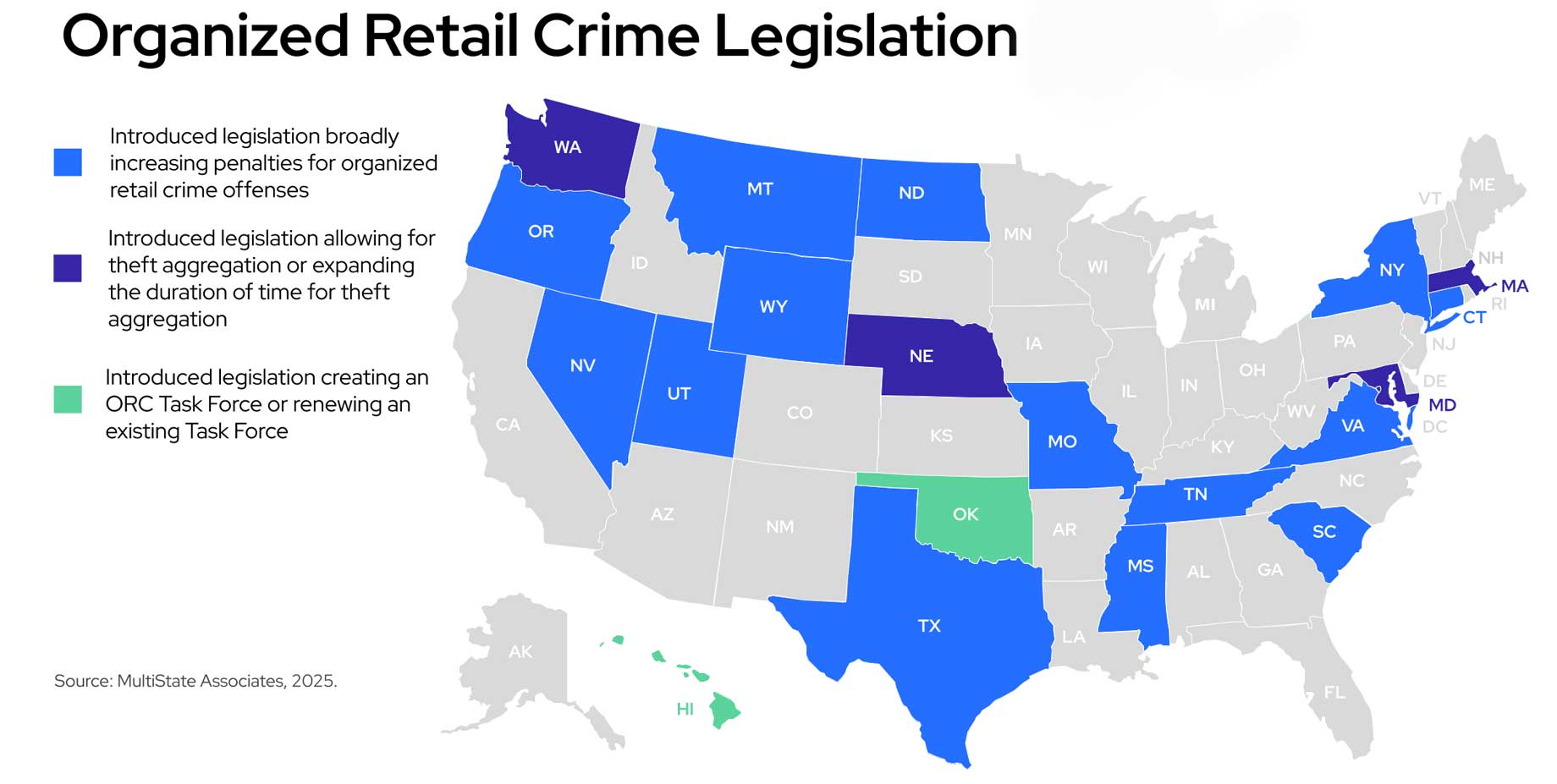Lawmakers in 20 states have already introduced 51 bills in their 2025 legislative sessions targeting Organized Retail Crime (ORC). While the majority of these measures either broadly increase penalties for theft offenders (44 bills) or allow for multiple thefts to be aggregated into one offense (seven bills), a few new categories of bills have emerged.
Increased penalties for violent and repeat offenders
Several states have called for harsher sentencing for violent and repeat offenders. Bills introduced in Missouri (MO SB 538), Oregon (OR HB 2535), South Carolina (SC HB 3523 and SC SB 159) and Tennessee (TN HB 207 and TN SB 240) have set higher penalties for violent acts of theft and/or using a deadly weapon in a theft. Meanwhile, lawmakers in New York (NY S 3227) and North Dakota (ND SB 2257) introduced legislation targeting repeat retail theft offenders.
Restitution for victims of ORC
Four bills proposed in Missouri (MO HB 277), Mississippi (MS HB 392), Oklahoma (OK HB 1592) and Oregon (OR HB 2535) specifically call on offenders to pay restitution to victims of theft. Oregon’s legislation requires a person to pay restitution to the merchant for the value of goods damaged or stolen and the cost of repairing any other property that was damaged during the offense. Mississippi’s version, on the other hand, puts the onus of responsibility on the seller of the stolen goods by making the offender pay the retail owner the full value of the property before paying any court fees or other criminal penalties.
12 months is the new time window for theft aggregation
Legislation allowing prosecutors to aggregate the total number of thefts across jurisdictions has been a key policy toward convicting offenders with tougher felony charges. Last year, lawmakers in Florida and Kansas enacted bills to give law enforcement up to 12 months to aggregate the total value of thefts. Typically, theft aggregation laws give prosecutors a 60- or 90-day period to charge thieves with total goods stolen. For 2025, two bills have been introduced in Oklahoma (OK HB 1592) and Washington (WA SB 5347) that continue the trend of expanding the window of theft aggregation to 12 months.
Gift card fraud included in broader ORC prevention efforts
In addition to stealing consumer goods, thieves are taking money stored on gift cards. In many gift card fraud cases, thieves take the credentials from unopened gift cards, upload that information into special software that alerts them when the card is activated, and then use the card electronically, clearing the card of value. Ohio lawmakers put a provision in their comprehensive ORC legislation (OH HB 366) last year that classifies gift cards as an "access device" and designates they should be treated similarly to a credit or debit card. This year, four bills have been introduced in New Jersey (NJ AB 4636), New Hampshire (NH SB 258) and Tennessee (TN HB 207 and TN SB 240) on gift card fraud. Tennessee’s bill, part of a larger ORC package, expands the offense to include knowingly possessing 10 or more fraudulently obtained access devices, including gift cards, with the intent to defraud another.
